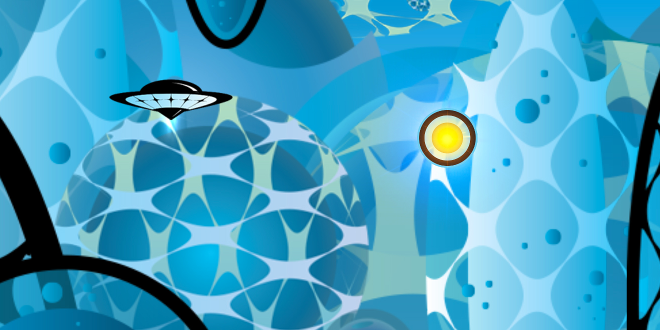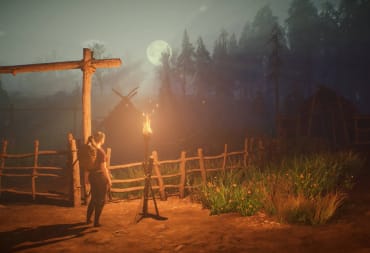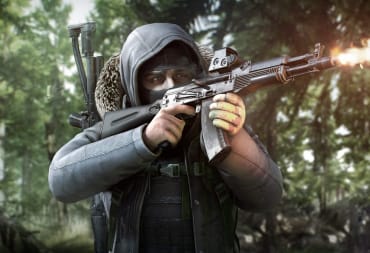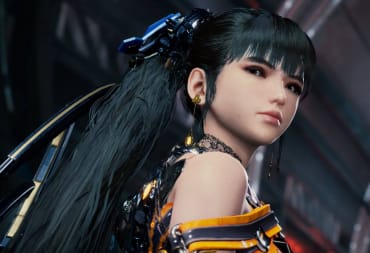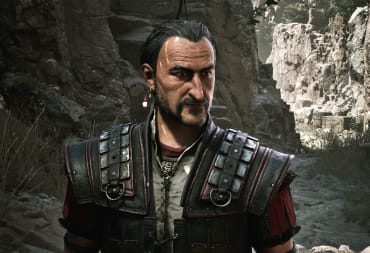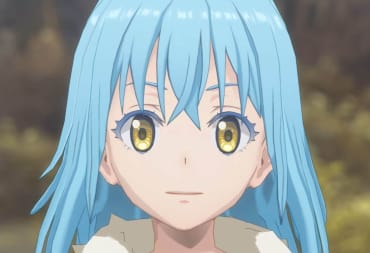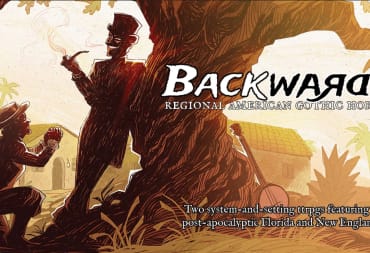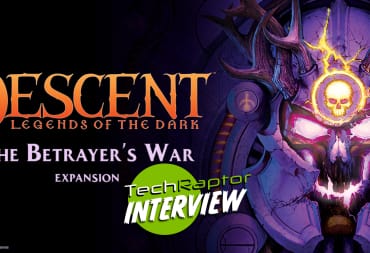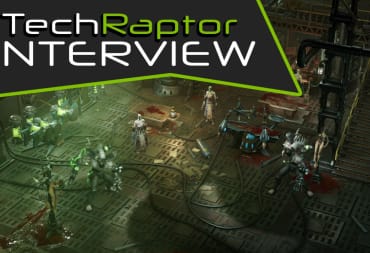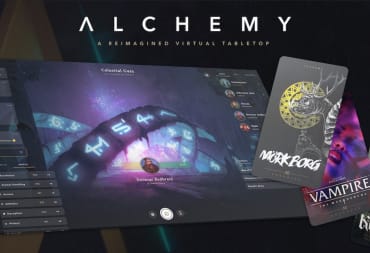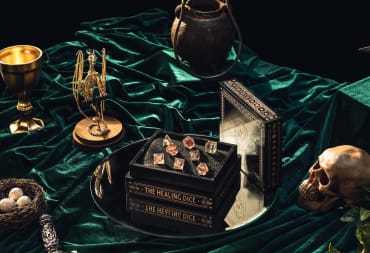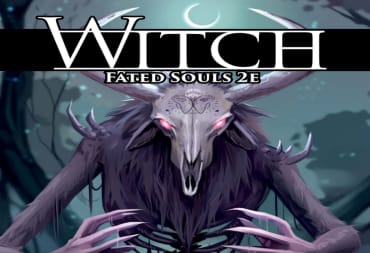Glenn Orzepowski is one of the people I ended up missing at Playcrafting's Fall Expo. Thankfully, I was able to follow up with him after the fact.
A lot of the attendees at Playcrafting's Fall Expo were independent developers who might not have taken any of Playcrafting's courses. Glenn, however, was a product of the education that Playcrafting provides for its students. That alone was a subject of interest for me, but I was happy to see that Glenn had a very aesthetically interesting game on his hands as well. All I had at the time of the interview was a single screenshot showing a spaceship flying through a simple yet elegant landscape.
I didn't yet know anything about the game, but it appeared to me that the art of the game was done by a very practiced hand. The striking visual aesthetic was improbably good for a student's first game, and I found it no surprise that Glenn was a graphic designer by trade. The conversation that we had gave me a fair bit of insight into how Playcrafting has helped someone get started as a game developer and what it's like to become an independent game developer from the very beginning.

TechRaptor: Glenn Orzepowski, I have to ask 'cause I'm half Russian and half Polish—that's gotta be some kind of Slavic name. Polish by chance?
Glenn Orzepowski: Yeah, as far as I know my whole family, on both sides, is from Poland. Yeah, totally Polish.
TR: Yeah, it's the last three letters [that are] the dead giveaway for anybody in the know. I couldn't really find anything about your game aside from an article that's up on the Playcrafting website talking about how the 8 week Unity Course helped you.
GO: That Playcrafting course is where [It Happened In Outer Space] was born. Our first assignment in that class was a Flappy Bird clone.
In the time between this interview and the publishing date, Glenn has set up a website for It Happened In Outer Space as well as a dedicated Facebook page.
TR: I read the entire article multiple times because I found it so interesting. Seeing it from start to finish how you did it.
GO: This is my very first game. I've never published a game before. It's always been a dream. That class was where this game was born and I've been working on it ever since.
TR: Tell me about the Playcrafting course. You said in that article that you had some difficulties at first. You tried to do self-tutorials [for game development] and you weren't able to and then you took Playcrafting's 8-week Unity course and that got you over the hump. What did they offer that you weren't able to do on your own?
GO: I guess it's all about focus. Unity has a great tutorial website where they have these one-hour live presentations which are actually pretty good. I like following those. I go to those every once in a while. But, I kinda had a hard time... I guess retaining [what I had learned]. The best thing about the class was staying on a project, like one thing for a couple weeks and getting a lot of instant feedback from the teacher. I could e-mail him questions. I think working with a group just helped me. Whenever I was just trying to do it out of a book or follow the website I didn't retain it as well. I didn't follow-up with what I was learning. It was easier for me to be in a class that lasted 8 weeks long and really absorb the knowledge. The [class] was two days a week so it was actually sixteen classes over an eight-week period.
In the post-interview e-mails, Glenn expanded on his experiences with Playcrafting: "I should also mention that I was fortunate to have a great teacher. My teacher was Kurt Bieg, CEO and founder of Simple Machine (makers of Pop The Lock, Smove, etc.). I benefited greatly by learning from an expert in game development."
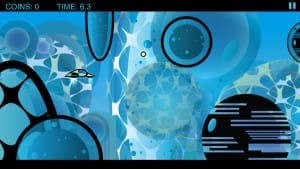 TR: How long [was each class]?
TR: How long [was each class]?
GO: I'd say about [two and a half hours].
TR: Oh wow, so, it's not like eight weeks, forty hours a week or something like that. It's something you can do outside of your day job.
GO: Yeah, it was something you go to after work.
TR: [I'm terrible at math, but let's round it up to 3 hours per class and it comes out to roughly 48 hours total class time.] You went [48] hours from not being able to make a game to making several [simple] games and now you're working on your first. Are you shooting for a commercial [release] or are you going to put it out for free?
GO: Um, that's something I'm thinking about. I'll either incorporate Unity Ads or I'll just put a fixed price on it. I'm not sure which way is the best way to go. Although, I hear lately the trends is [that] ads help.
TR: [So] this is a money-making endeavor.
GO: Yeah, it is.
TR: So, [48] hours over eight weeks and you go from not being able to complete a game to now you're working on completing a game that you intend to make money off of. Did you have stuff to do outside of the class [such as] homework?
GO: Yeah, we always had an assignment. [The teacher] would give us little programming assignments. Also, I'm a graphic designer and I have a background in illustration so I would do a lot of work in Photoshop and Illustrator to kind of make the visuals a lot nicer.
TR: That was one of the things that stood out to me. [From the] one picture that I saw [prior to Playcrafting's Fall Expo], I [thought], "Wow, this game looks really nice for [a first effort]." That speaks to that particular skillset of yours.
GO: Oh, thank you. When I went to college we didn't have computers. I graduated class of '90 and it was our last semester that we actually got our first computer with an early version of Illustrator loaded. And back then it wasn't Adobe, it was Aldis.
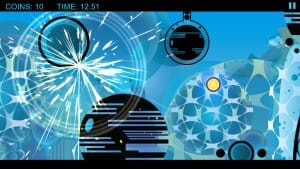 TR: And when was this, roughly?
TR: And when was this, roughly?
GO: My last semester was actually Fall '89.
TR: Oh boy, so you're a bit of the old guard there, huh?
GO: Yeah, [I just turned 50 in November 2015.]
TR: Starting a bit late [on your new career, huh]?
GO: Yeah, but you know what? Until iPhones [and] Unity ... I guess I could have taken [college courses]. Now it's kind of accessible to anybody through your desktop. And it's really a good time for a lot of people I think.
TR: Yeah, that's one of the things I talked to Dan Butchko (the CEO of Playcrafting) about. It's never been easier to make games so why are so many people struggling to do it? There's so much information available. [But that little bit of hands-on instruction] actually counts for a lot.
GO: Yeah, I think so.
TR: Now that you've completed [what amounts to Playcrafting's] bootcamp and you know how to make games in Unity at a comfortable level, are you gonna be continuing to attend any of their stuff in their future if anything comes up and interests you or do you feel [that] you have enough [knowledge] that you wouldn't necessarily need [Playcrafting's services] anymore?
GO: No, actually I do intend to [keep going to Playcrafting courses]. In fact just this past Thursday [October 27] they had a class on Legal 101 for game developers. That's one thing. They also offered a marketing class [a couple weeks ago] which I didn't have time to take. I think that's information I could use.In the post-interview e-mails, Glenn had more to say: "On November 4th I attended a Playcrafting panel discussion, 'Game Changers - Meet The Experts.' It was a talk about what works and what doesn't work in mobile advertising to help drive user acquisition."
TR: Essentially, what you've just told me there is that if you take that eight-week course and that's all you want to do you can make games at the end of it and you're proof positive of that. But, if you want to expand your skillset they also offer continuing education beyond just how to make [a game at a basic level].
GO: Right. Game development [isn't just] about [programming].
TR: Let's get to talking about your game [It Happened In Outer Space]. All I have to go on is [one] screenshot of a spaceship flying sideways. In that framework, it looks like a side-scroller with a spaceship and I think it was shooting a laser. So, tell me about your game. What's your game all about?
GO: Well, it started as [the Flappy Bird] clone project in our class and it evolved from there. It's still a Flappy Bird clone basically. You tap on the screen to keep your ship [aloft], stop tapping to let it sink, that kind of thing, and just avoid obstacles that are coming at you. Each [level] is a little unique with different obstacles and different scenery. It kind of gives you the feel of being on other worlds. When the game begins you can choose what ship you want and then choose the level you want to play that ship in. You will earn coins to unlock other ships and other worlds.
TR: Are you gonna put this strictly on tablets and phones or are you gonna go towards PC or consoles at all? Because Unity as an engine, if you make [a game] in Unity [you can put your game] on pretty much any modern device.
GO: Right now I'm focusing on iOS devices and Mac desktop. I want to also get it on Android devices. I don't have an Android device to test it on so I'll just get one and make sure it's working well and then I'll put it on Android, too. I know Unity exports to Playstation and Xbox but I don't know how easy it is [compared to getting something on iTunes or Google Play] because I just haven't researched it [yet].
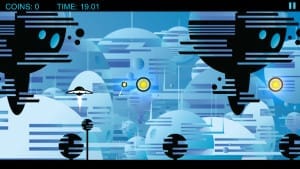 TR: [When] Flappy Bird came out it was explosively popular, and there were of course tons of clones. You said [It Happened In Outer Space] is basically in that same vein. That being the case, you certainly have an uphill battle to fight in this regard. I suppose my question for you would be if it turns out that you put your game out and just for one reason or another it's not super wildly successful would that be the end of Glenn Orzepowski's game development career or would you just be like, "Okay, I guess it just didn't get picked up. I'm gonna make something new now."
TR: [When] Flappy Bird came out it was explosively popular, and there were of course tons of clones. You said [It Happened In Outer Space] is basically in that same vein. That being the case, you certainly have an uphill battle to fight in this regard. I suppose my question for you would be if it turns out that you put your game out and just for one reason or another it's not super wildly successful would that be the end of Glenn Orzepowski's game development career or would you just be like, "Okay, I guess it just didn't get picked up. I'm gonna make something new now."
GO: That would not be the end of my game development career. Actually, just getting my first game out whether it sells two copies or two million... just getting it out for me would be a major achievement and I would be feeling very good about myself just to have accomplished that much.
TR: That's a good way to look at it.
GO: And also, I'm not working for a company. This is just me. I'm doing everything. The art, the coding, [the website]. I'm a one-man show and I don't have to answer to anybody.
TR: Other than yourself.
GO: Right. I'm [not] disappointing anybody other than myself and I'm not accountable to anybody other than myself, but it feels great to be my own boss and I really enjoy working on this game project. Right now, my goal is to get it out there and I hope it does well, but if not it doesn't matter. It's still a good learning experience and I have a lot of other game ideas that I want to pursue. I actually have a journal [and I] got like about sixty different ideas. Every time I think of something I just write it down.
TR: Yeah, I got one of those, too.
GO: As for it being a common mechanic like Flappy Bird, this class [I attended was] a class for beginners. I still call myself a beginner. It's my very first game and it's gonna have to be simple to start. I hope maybe five years from now I'll be doing something super complex. For now, this is already a big achievement for me that I'm really proud of.
TR: What got you into gaming [aside from the perspective of a designer]?
GO: I was playing since Pong came out in the '70s. And before that I was playing pinball. Then Pong came out and I said, "Wow, this is so cool." I had my Atari 2600.
TR: So you were there from the start, basically.
GO: Yeah, and I still have my Atari games. I have like fifty cartridges which are in a closet right now. I had the Dreamcast, my PS2, my PS3.
TR: Oh yeah, you're definitely an enthusiast because [from my perspective] only enthusiasts bought the Dreamcast as evidenced by its poor sales unfortunately.
GO: I had to modify so that I could play Japanese games 'cause there's a lot of great titles from Japan.
TR: What motivated your interest to actually make games?
GO: Aside from the fact that I've been playing games for decades and also I love my iPhone and everything Apple, I'm a graphic designer [and] I have a background in illustration. As a graphic designer I know a lot of graphic designers. Some are in print or publishing or corporate graphic design in some way. I know a lot of graphic designers who specialize in websites. I don't know anybody (outside of the people I met at Playcrafting, of course) in my personal life who's making games. I'm thinking maybe there's not enough game makers out there [and] maybe I should be doing this. I want to do something cool.
TR: Is there anything else you feel people should know? Anything about your future projects?
GO: As for future projects, they're all on paper. I thoroughly intend to pursue whatever I feel is the best idea out of that lot. I hope to get this done by early 2016. I wanted to get it done before the end of this year but [now] I'm thinking more like early 2016. I'll definitely go right on to the next one after that. And, who knows, maybe if I'm successful I'll start my own indie game company someday. It would be so cool to do this for a living.
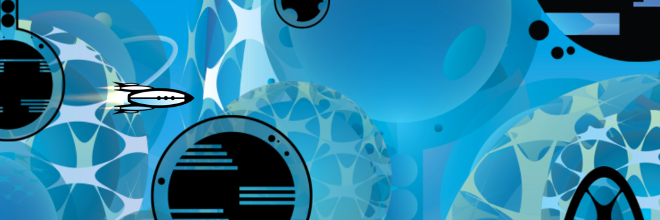
It was a genuine pleasure talking with Glenn about his game and his experience as a game designer.
It Happened In Outer Space won the award for Best Student Game, 2015, at the First Annual Playcrafting NYC Awards.
In a follow-up e-mail, Glenn had this last bit to say: "It was a great honor for me [to win the Best Student Game, 2015 Award] and makes me want to work that much harder to produce a great game. My game will be on display January 28th at Playcrafting's NYC Winter Expo [2016]. The event is open to all, so please drop by my table to say hi and try out It Happened In Outer Space."
It Happened In Outer Space should be out sometime in 2016 for iOS and Mac devices. I'm an Android guy myself, so I'll have to wait for the port. In the meantime, I'll be looking forward to meeting Glenn in person at Playcrafting's Winter Expo 2016 and getting my hands on the game so I can give it a try!
The images used in this article were provided courtesy of Glenn Orzepowski.
Do you think a Flappy Bird game can be successful? What sort of game ideas do you have floating around in your head? Let us know in the comments below!
Have a tip, or want to point out something we missed? Leave a Comment or e-mail us at tips@techraptor.net
